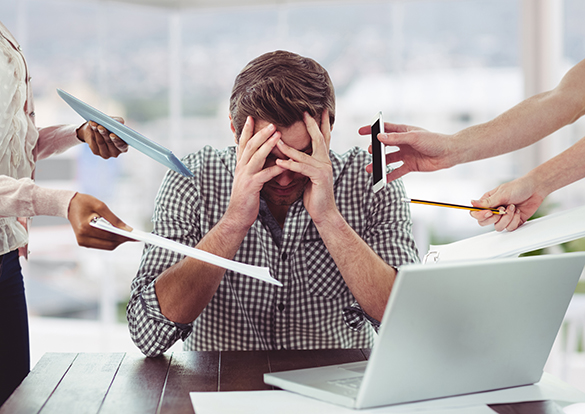Yes, it can make them much more difficult. Often there are: limitation in life activity, gradual loss of current interests, difficulties in undertaking various activities and actions, up to the extreme abandonment of these activities (abulia) – for example, the inability to get out of bed, perform the simplest hygienic activities, such as getting dressed, washing, brushing. The gradual loss of vital energy and decreased sensitivity to emotional stimuli (apathy) are most often observed by the relatives of the patient. They are joined by: increased fatigue, chronic fatigue with limited daily activity. Sometimes there is psychomotor agitation with a sense of increased internal tension, anxiety and an inability to find a place for yourself.
Find help: Heroin detox in new jersey AlinaLodge.org
Can There Be Anxiety In Depression?
Although anxiety is not a typical symptom of depression, it is very often associated with it. Although the patient has a feeling of persistent anxiety, it is difficult to define what specific he / she is afraid of (indefinite anxiety). Anxiety is often chronic, its intensity gradually increases and decreases (slow-flowing anxiety), it is often located somewhere in the middle of the body, for example in the chest, and described as pressure, palpitations.
Is Paranoid Schizophrenia A Major Depression?
Depressive thinking is a pessimistic evaluation of one’s own past, present and future, loss of self-esteem, low self-esteem, a feeling of being worthless, unnecessary. Sometimes depressive delusions (false judgments in which the patient believes the truth despite futile attempts to confront him with reality) about guilt, being sinful, punished, condemned, or about poverty, poverty, the lack of any future prospects for himself and his family. The presence of such delusional thoughts is an absolute indication for consultation with a psychiatrist, they may be the first symptoms of schizophrenia.

Related article: Dangers of smoking heroin
Who Is Depressed Most?
Risk factors for the development of depression include: female gender, middle and older age (the highest risk is between 40 and 64 years of age), divorce and widowhood, low socioeconomic status, as well as genetic factors. The socio-economic situation of the patient and the burden of mental disorders in the family are of great importance.
Currently, when considering the causes of mental illnesses, including depression, the so-called the biopsychosocial model. It takes into account the causes of depression, among others:
- biological factors (e.g. genetic factors, changes in the level of neurotransmitters in the brain, somatic health, chronic diseases, addictions);
- psychological factors (e.g., stressful life events and ways of coping with them, marital and family relationships and relationships with others);
- social and cultural factors (e.g. social support network, feeling of loneliness, work, school, material and housing situation).
- It is also recommended to study the interrelationships of the above-mentioned factors, as they often occur simultaneously. Most often, mental illness, including depression, is the result of the interaction of several different factors belonging to several of the above-mentioned categories.

